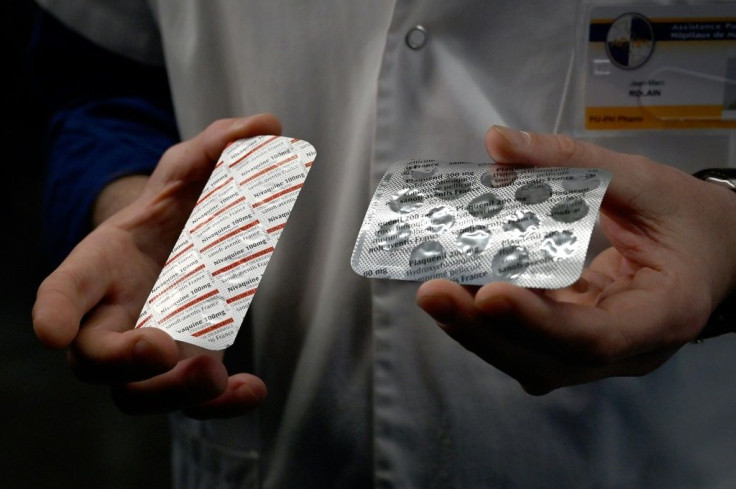Coronavirus Treatment: Trump's Hydroxychloroquine Increases Heart Attack Risks Among COVID-19 Patients
KEY POINTS
- Trump has stopped promoting the drug hydroxychloroquine as a cure for COVID-19
- Two medical studies attest to the health dangers posed by using the anti-malaria drug
- The FDA also says hydroxychloroquine use can lead to death in some cases
New medical studies show hydroxychloroquine, which was touted by President Donald Trump as an effective treatment for COVID-19, is more likely to kill its users than cure them.
Two medical studies published over the last three weeks attest to the health dangers posed by using the anti-malaria drug, hydroxychloroquine. The latest of these studies published Monday in the peer-reviewed journal, JAMA Network Open, suggests hydroxychloroquine taken in conjunction with azithromycin (AzT) is associated with “significantly elevated levels of cardiac arrest” even after adjusting for factors such as sex, age, underlying health conditions and more severe illness.
The conclusion was based on an observational study involving 735 patients that received hydroxychloroquine with azithromycin, 271 hydroxychloroquine alone, 211 azithromycin alone while 221 received neither drug.
The study analyzed more than 1,400 medical records of hospitalized patients with COVID-19 across 25 hospitals in the New York metro area between March 15 and 28. The study was conducted by the New York State Department of Health in partnership with the University of Albany. It did not “observe a significant benefit” of the administered drugs.
“This observational study has given us an important early look at some key questions related to prescribing patterns of hydroxychloroquine, azithromycin and chloroquine,” said Dr David Holtgrave, dean at the University of Albany’s School of Public Health and a researcher working with the state.
“Unfortunately, we did not observe benefits of the most used drug (hydroxychloroquine with or without azithromycin) in this group of seriously ill, hospitalized patients.”
This is the second study in less than a week that concluded hydroxychloroquine might not be helpful to COVID-19 patients. A study published in the New England Journal of Medicine on May 7 found hydroxychloroquine didn’t appear to help hospitalized patients with COVID-19. It looked at 1,376 consecutive patients that showed up at the emergency room with symptoms of COVID-19.
Nearly 60%, or 811 of the patients, received the drug within 48 hours and were found, on average, to be more severely ill than those who didn’t receive the drug, the researchers said. They said the study didn’t find any potential benefit or harm from the drug, adding a rigorous, randomized clinical trial is needed.

The study was funded by the U.S. National Institutes of Health (NIH) and conducted by researchers at New York-Presbyterian Hospital and Columbia University Irving Medical Center in New York City.
On May 1, the U.S. Food and Drug Administration (FDA) warned doctors not to use chloroquine and hydroxychloroquine to treat COVID-19 patients outside of a clinical trial or hospital setting because the drugs could cause patients to experience "serious heart rhythm problems."
It warned COVID-19 patients might experience life-threatening side effects when taking chloroquine and hydroxychloroquine. FDA said the side effects include "abnormal heart rhythms such as QT interval prolongation, dangerously rapid heart rate called ventricular tachycardia and ventricular fibrillation, and in some cases, death."
© Copyright IBTimes 2024. All rights reserved.





















